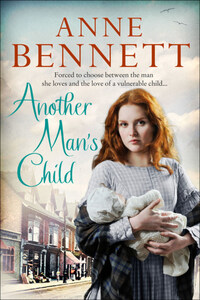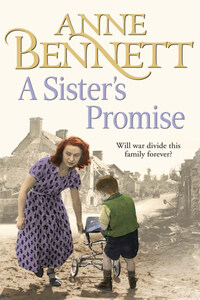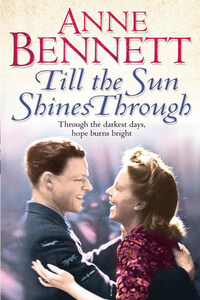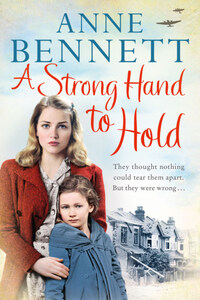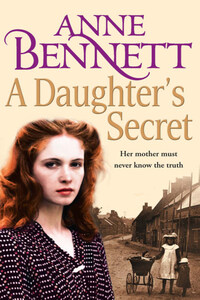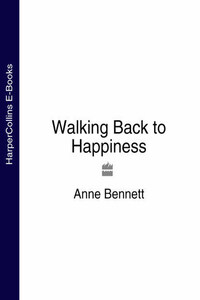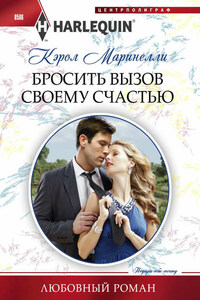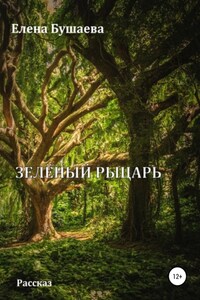Published by HarperCollinsPublishers Ltd 1 London Bridge Street London SE1 9GF
www.harpercollins.co.uk
A Paperback Original 2015
1
Copyright © Anne Bennett 2015
Cover layout design © HarperCollinsPublishers Ltd 2015
Cover photographs © Gordon Crabb (woman and baby); Birmingham Museum Trust (street scene)
Anne Bennett asserts the moral right to be identified as the author of this work.
Cottage photograph © Martin Logue
A catalogue copy of this book is available from the British Library.
This novel is entirely a work of fiction. The names, characters and incidents portrayed in it are the work of the author’s imagination. Any resemblance to actual persons, living or dead, events or localities is entirely coincidental.
All rights reserved under International and Pan-American Copyright Conventions. By payment of the required fees, you have been granted the non-exclusive, non-transferable right to access and read the text of this e-book on screen. No part of this text may be reproduced, transmitted, down-loaded, decompiled, reverse engineered, or stored in or introduced into any information storage and retrieval system, in any form or by any means, whether electronic or mechanical, now known or hereinafter invented, without the express written permission of HarperCollins.
Source ISBN: 9780007359271
Ebook Edition © November 2015 ISBN: 9780007383276
Version: 2017-09-08
It was Norah Mulligan walking alongside her sister, Celia, who noticed Andy McCadden first. It was the first Saturday in March and the first Fair Day of 1920 in Donegal Town.
It was a fine day, but March living up to its name of coming in like a lion, meant it was blustery and cold enough for the girls to be glad they were so warmly clad. They were still wearing winter-weight dresses, Celia’s in muted red colours and Norah’s muted blue, and they were long enough to reach the top of their boots so the thick black stockings could not be seen. Over that they were wearing Donegal tweed shawls, fastened by Celtic Tara brooches, and their navy bonnets matched the woollen gloves that encased their hands.
Celia knew Norah considered bonnets old fashioned and babyish but Celia was glad of hers that day and also liked the blue ribbons that tied so securely under her chin. ‘Anyway,’ she had reasoned with her sister when she had complained again that day as she got ready in their room. ‘You’d have to have a hat of some sort – and just listen to the strength of that wind. Any other type of hat you had today would be tugged from your head in no time and in all likelihood go bowling down the road, however many hatpins you had stuck in it. You running to retrieve it would cause great entertainment to the rest of the town and I doubt that would please you much either.’
Norah said nothing to that because she did agree with Celia that bonnets were the safest option that day, especially when riding in the cart with their father where the wind was even more fierce. Given a choice she wouldn’t have gone out at all, but stayed inside by the fireside; however, their mother, Peggy, had given them a list of things to buy as they were going in on the cart with their father who had some beef calves for sale. They did go in often on Saturdays because the Mulligans’ farm was just outside the town and Peggy always said her gallivanting days were over, so the girls each had a bulging shopping bag as they crossed the square – shaped like a diamond and always referred to as such – to the Abbey Hotel where they were meeting their father.
The beasts for sale were in pens filling the Diamond and the pungent smell rose in the air and the noise of them, the bleating and grunting and lowing and squawking of the hens, just added to the general racket, for the streets were thronged with people, the shops doing a roaring trade.
As usual on a Fair Day the pubs were open all day. Some might have their doors slightly ajar so the two girls might get a tantalising glimpse inside. That was all they would get though, a glimpse, and if any men were standing outside with their pints, they would chivvy them on, for respectable women didn’t frequent pubs and certainly not young ladies like Norah and Celia.
The cluster of gypsies was there too as they were every Fair Day, standing slightly apart from the townsfolk. They’d always held a fascination for Celia, the black-haired, swarthy-skinned men who often had a jaunty manner and in the main wore different clothes to most men of Celia’s acquaintance: light-coloured cotton shirts, moleskin waistcoats and some, mainly the younger ones, bright knotted handkerchiefs tied at their necks, and they were not above giving girls a broad wink as they passed. The women seemed far more dowdy in comparison, for they were usually dressed in black or grey or dark brown with a craggy shawl around their shoulders and more often than not there was a baby wrapped up in it, while skinny, scantily dressed, barefoot children scampered around them.
